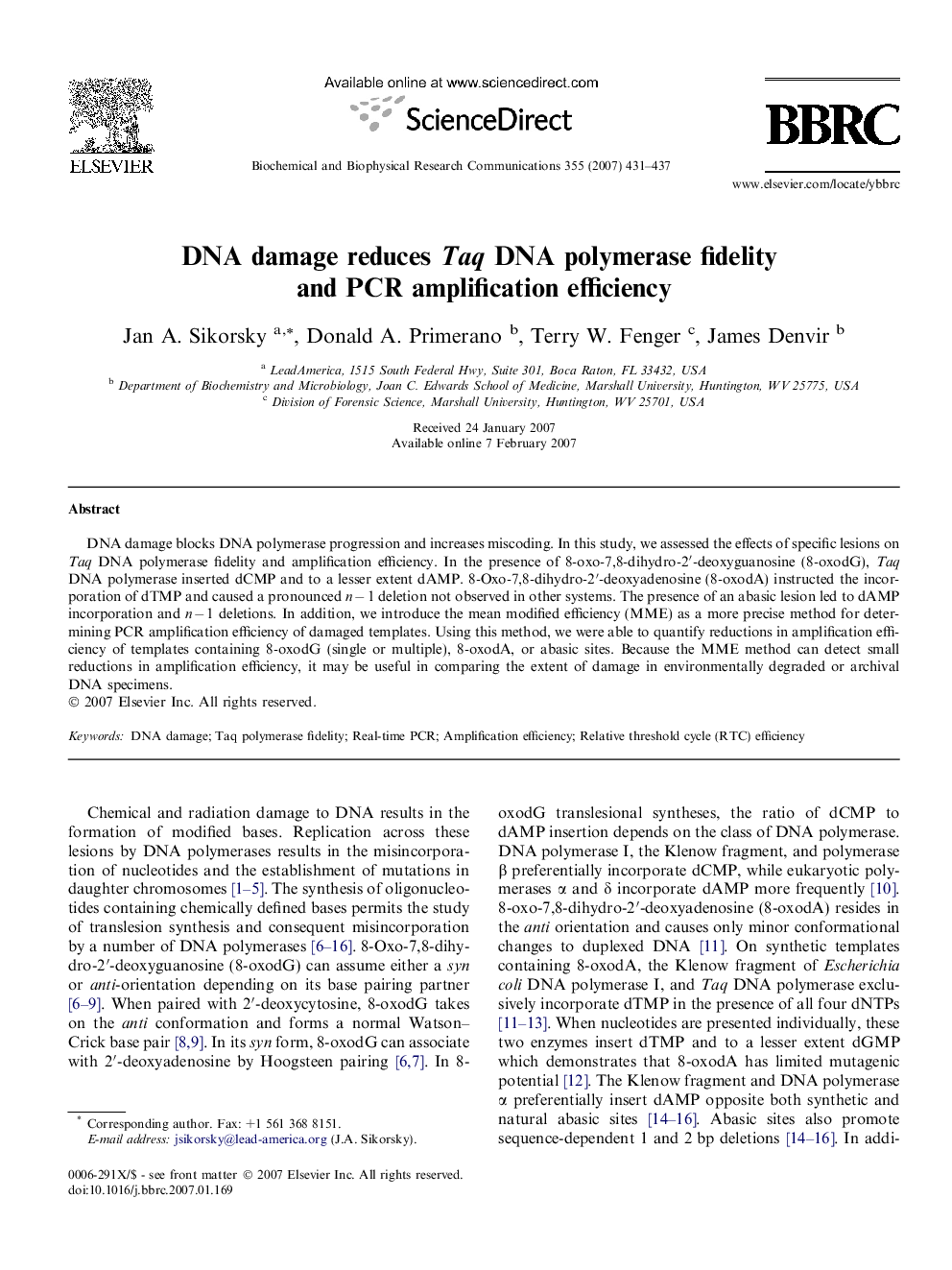| Article ID | Journal | Published Year | Pages | File Type |
|---|---|---|---|---|
| 1937438 | Biochemical and Biophysical Research Communications | 2007 | 7 Pages |
DNA damage blocks DNA polymerase progression and increases miscoding. In this study, we assessed the effects of specific lesions on Taq DNA polymerase fidelity and amplification efficiency. In the presence of 8-oxo-7,8-dihydro-2′-deoxyguanosine (8-oxodG), Taq DNA polymerase inserted dCMP and to a lesser extent dAMP. 8-Oxo-7,8-dihydro-2′-deoxyadenosine (8-oxodA) instructed the incorporation of dTMP and caused a pronounced n − 1 deletion not observed in other systems. The presence of an abasic lesion led to dAMP incorporation and n − 1 deletions. In addition, we introduce the mean modified efficiency (MME) as a more precise method for determining PCR amplification efficiency of damaged templates. Using this method, we were able to quantify reductions in amplification efficiency of templates containing 8-oxodG (single or multiple), 8-oxodA, or abasic sites. Because the MME method can detect small reductions in amplification efficiency, it may be useful in comparing the extent of damage in environmentally degraded or archival DNA specimens.
